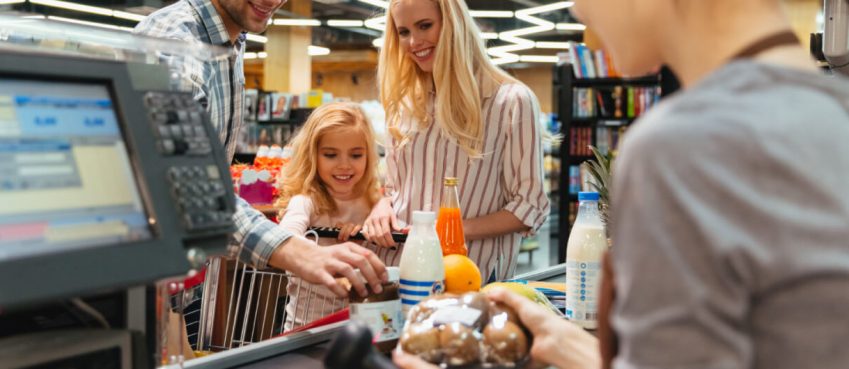
E-commerce has grown to be a major market, especially since the pandemic. It was initially an innovative and experimental model of shopping. There are many opportunities for innovative business models as internet penetration and digitization rise.
According to IBEF India’s eCommerce market will reach $111 billion in 2021 and $200 billion in 2026, according to IBEF. Experts share the following trends for the industry in 2022.
Top Trends that will Shape E-Commerce
Kirana Tech
According to reports, India’s $600 billion food- and grocery market is controlled by more than 14 million Kirana shops. The Kirana is India’s King of the food and grocery industry.
This was evident more than ever during the Covid pandemic when the local familiarity and unparalleled proximity of Kirana entrepreneurs shined through for consumers as well as brands,” stated Ashish Jhina (COO, co-founder, Jumbotai).
Covid has forced Kiranas into adopting technology. “In 2021, Kiranas across the country adopted e-commerce to source products at an unprecedented rate.
He said that a significant factor in this rapid transformation was the rapid expansion B2B eCommerce platforms, which offer a significantly larger selection, faster delivery, better fill rates and working capital financing, and the convenience of ordering online whenever needed.
Jhina believes that the transformation of Kiranas to digitally-enabled, omnichannel grocery shops has already begun and will only accelerate over the next year. But what impact will quick commerce have on Kirana shops?
Also read: How To Refinance Student Loans? Top Companies List + FAQs
Quick Commerce
RedSeer management consultancy estimates that quick commerce will be a $30 million market by 2021. It is projected to grow 15x to $5 billion in 2025, according to RedSeer. Quick or instant commerce, like social commerce, has also gained popularity following the pandemic.
Ola has recently launched a 15-minute grocery delivery service in Bengaluru. Swiggy delivers groceries in 15-30 mins via InstaMart, Grofers (now rebranded under Blinkit), Dunzo promises delivery in Bengaluru in 19 minutes through Xpress Mart, and BigBasket has BB Express which claims it can deliver all your essentials in 60 minutes.
Amazon Fresh, which has been expanded to several cities this year, promises delivery in two hours and Flipkart within 90 minutes under the Flipkart Quick service. Recently, Zepto and Satvacart raised funding. This will impact Kirana’s stores.
Traditional Kirana shops have the advantage of existing relationships with customers in their neighborhood, and larger product categories and SKU mixes.
The operational overheads of Kirana shops are still very low, which gives the cushion of sustainability as well as a very long runway to compete,” Padmaja Ruparel (co-founder, Indian Angel Network, founding partner, IAN Fund) said.
Supply Chain Tech
Chatbots are a growing technology that allows for automated communication within the supply chain. It is far from being able to mimic real conversation.
This is where large language models such as GPT4 and similar models can be very useful. These models will be used by many companies, especially in the logistics sector,” stated Shantanu S. Bhattacharyya chief data scientist at Locus.
Bhattacharyya believes that blockchain is another trend in the supply chain for the e-commerce industry. As blockchain adoption becomes mainstream, there will be less regulatory overhead, especially in cross-border supply chains touchpoints.
Also read: What Is Blooket? How To Sign Up, Create Question Set, Join Blooket, & More + FAQs (Part I)
Rollup Commerce
The rise of Thrasio-style startups or what’s known as rollup commerce was another key trend that made heads spin this year. Many startups in this space have raised large rounds of funding in a relatively short time.
Mensa Brands was the fastest Indian unicorn last month. NCR-based UpScalio invested in Autofurnish for its fourth time.
GlobalBees is also reportedly looking to raise $100 million for a unicorn valuation. The Good Glamm group added MissMalini Entertainment to its group earlier this week.
“Many Thrasio-based startups have successfully completed their funding rounds. They have begun acquiring brands. We could see the acquisition rate pick up in 2022.
BlackSoil director Ankur Bansal said that the next year could serve as a test for investors in the space, with startups proving their business models, on which large amounts of capital have been raised.
He said that these companies may seek a larger equity round or increase their debt load by 2022 to expand the operations of acquired brands and take over new ones.
Alka Goel is the founder of Alkemi Growth Capital. She believes that there is a limited pool of companies to acquire.
This will have one of two consequences. Companies may have to assign a higher valuation due to increased competition or slow down acquisitions. She said that younger companies have more exit options, which is a boon.
Also read: Everything You Need To Know About CivitAI (2024 Guide)
Direct-To-Consumer (D2C)
Experts agree that 2022 is a year of evolution and growth for the D2C segment. This will result in fierce competition. The market will see increased competition as more brands choose to go D2C.
This has also changed customer expectations. Consumers expect frictionless post-checkout experiences that include tech-first solutions like one-step check out, pre-filled addresses and RTO predictions.
The Unicommerce emerging eCommerce segment report states that D2C brands will expand into tier-2 cities and tier-3 areas even more. Therefore, multiple warehouses are likely to be opened to meet this demand.
We expect more innovation in customer engagement models to meet the changing consumer needs.
This includes more sophisticated engagement on mass platforms like WhatsApp, VR/AR-led models, live commerce, and more advanced engagement via mass platforms like WhatsApp.
D2C brands will also be focusing on the post-purchase experience, ensuring that most deliveries are made within 24 hours.
Unicommerce CEO Kapil Makhija stated that D2C brands will see more investment in technology and processes to sustain their growth momentum. He said that D2C companies will continue to find niches for their product, services, and positioning. to attract customers and combat competition.
India is eighth in the e-commerce market with a revenue $46 million in 2020. This is expected to grow at more that 30% YoY.
This opens up huge opportunities for new business models. Technology will remain the backbone for existing companies as well as new startups that are leading the ecommerce revolution in rural areas, particularly Tier II and Tier III.
Top 10 News
-
01
10 Exciting iPhone 16 Features You Can Try Right Now
Tuesday November 19, 2024
-
02
10 Best Anatomy Apps For Physiologist Beginners
Tuesday November 12, 2024
-
03
Top 10 Websites And Apps Like Thumbtack
Tuesday November 5, 2024
-
04
Top 10 Sites Like Omegle That Offer Random Video Chat
Monday October 21, 2024
-
05
Entrepreneurial Ideas To Make 5K In A Month (10 Realistic Wa...
Monday October 7, 2024
-
06
[10 Best] Cash Advance Apps Like Moneylion And Dave (No Cred...
Friday September 20, 2024
-
07
Top 10 Richest Person In The World
Tuesday August 27, 2024
-
08
Top 10 Unicorn Startups In The World (2024-25)
Monday August 26, 2024
-
09
Top 10 IT Companies In The World By Market Cap
Thursday August 22, 2024
-
10
[10 New] Best OnionPlay Alternatives To Stream TV Shows And ...
Tuesday June 11, 2024







